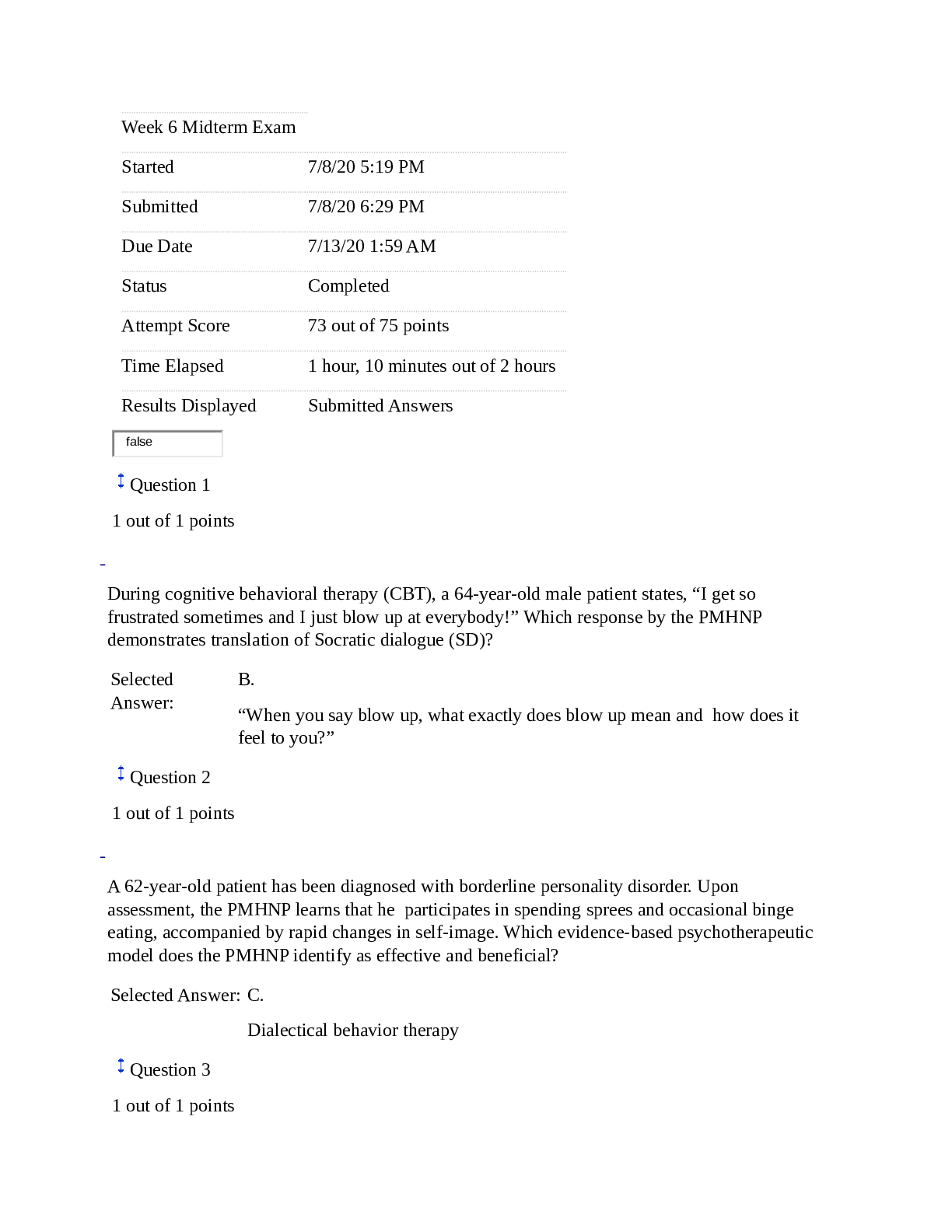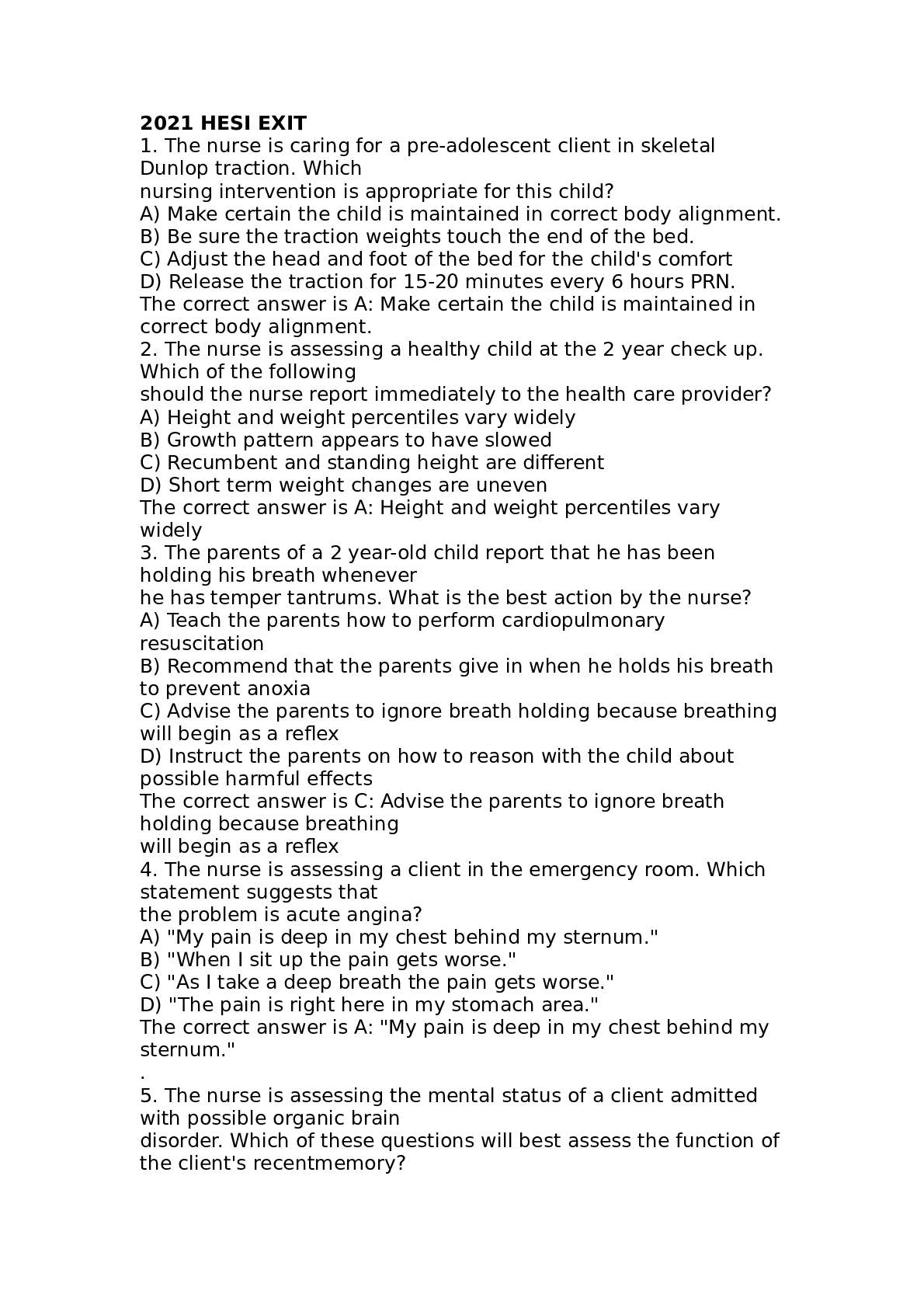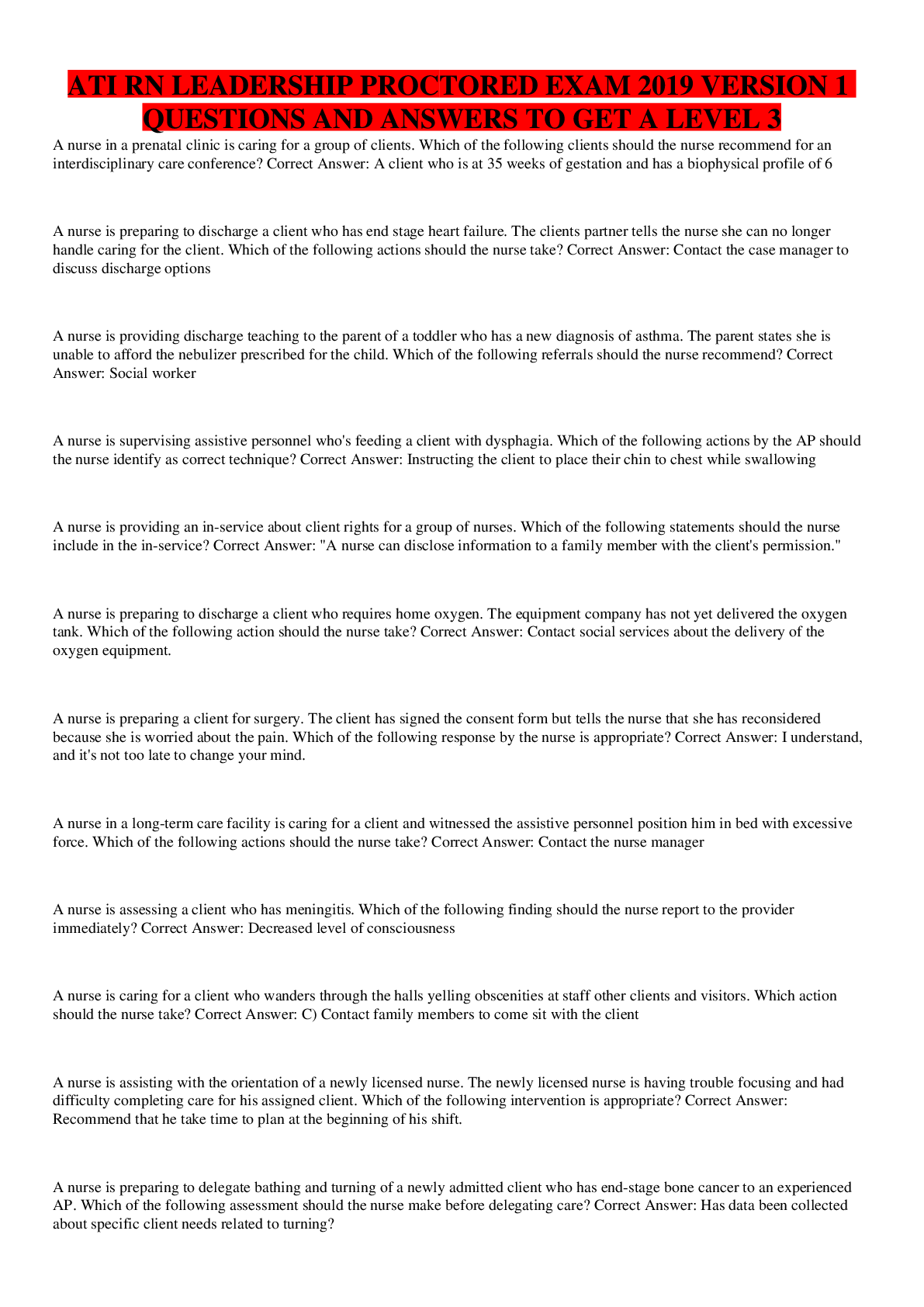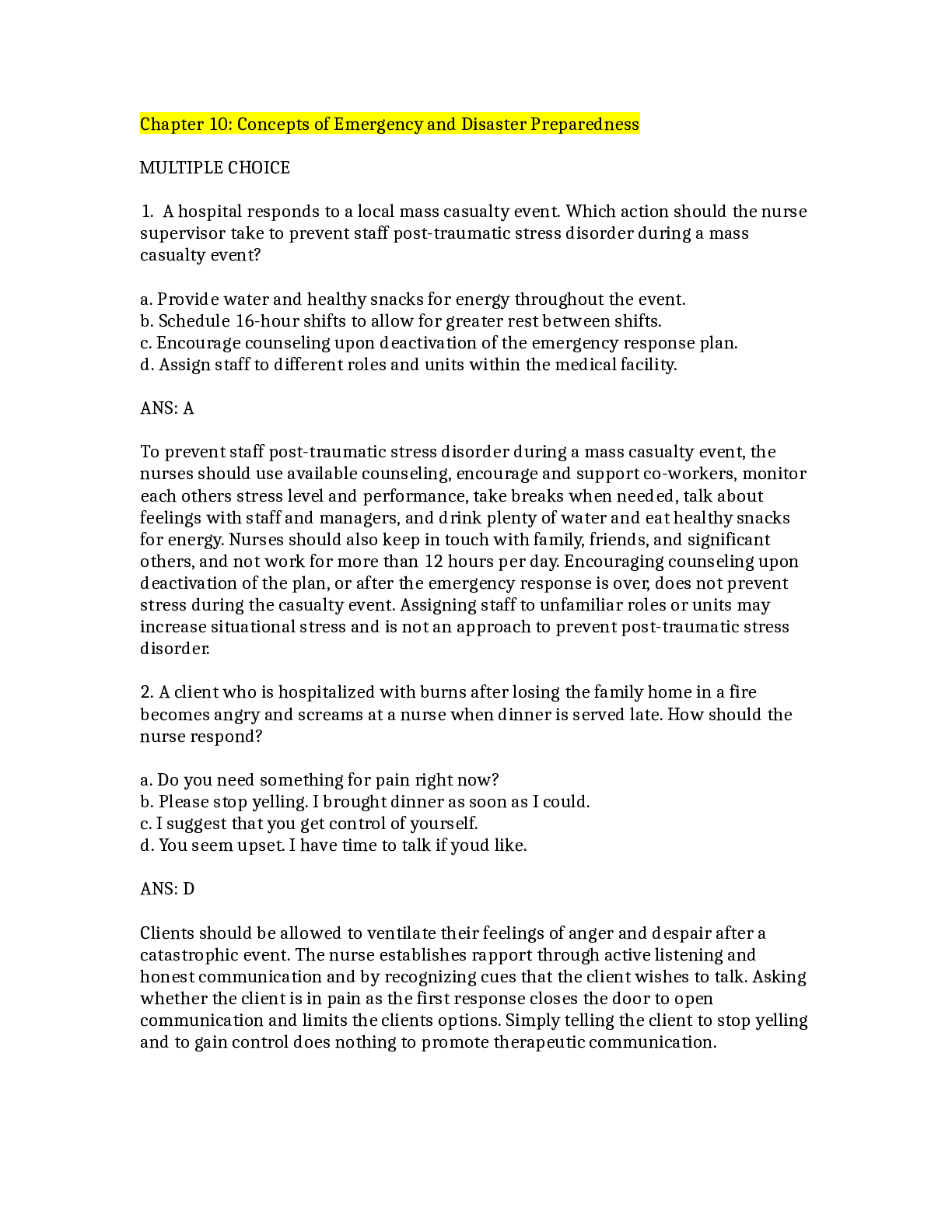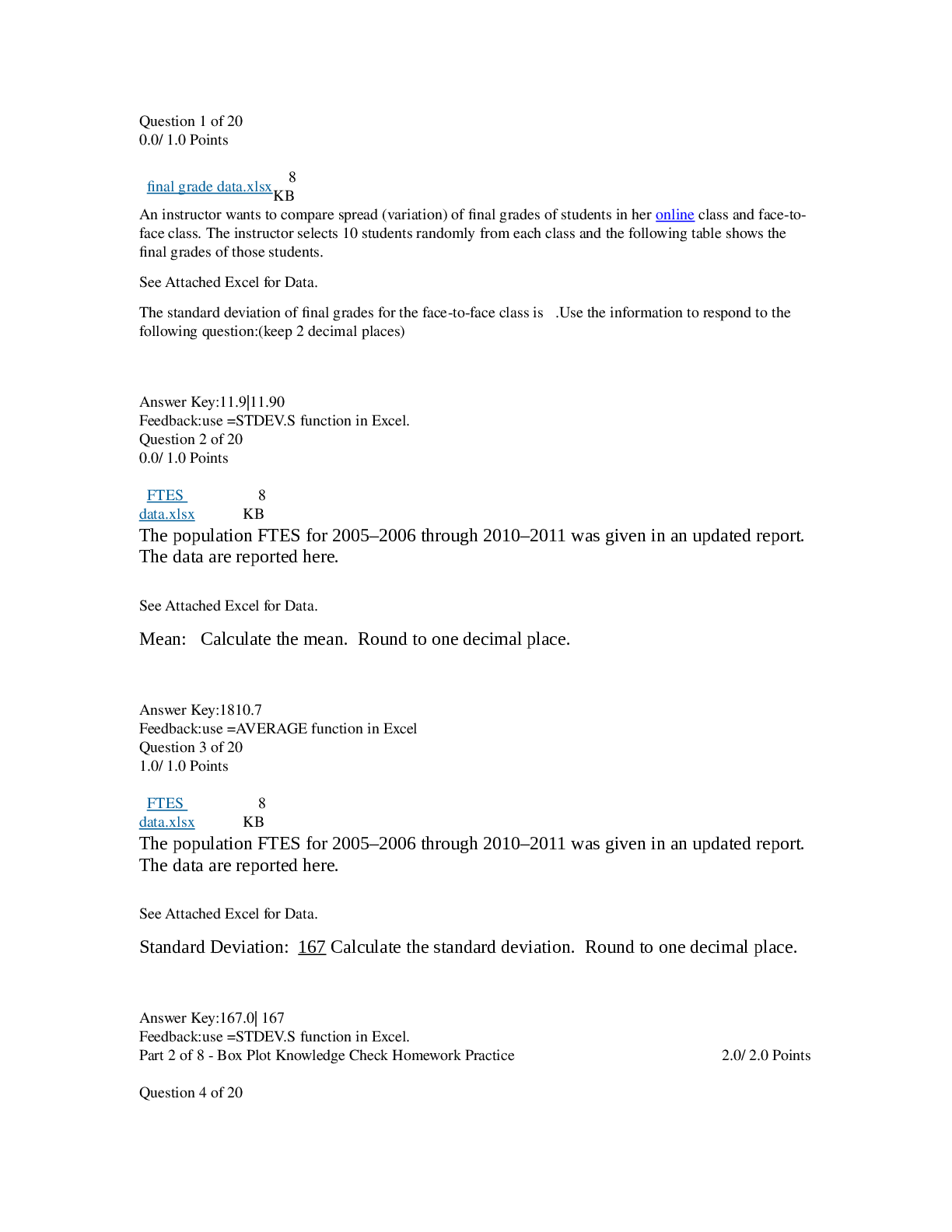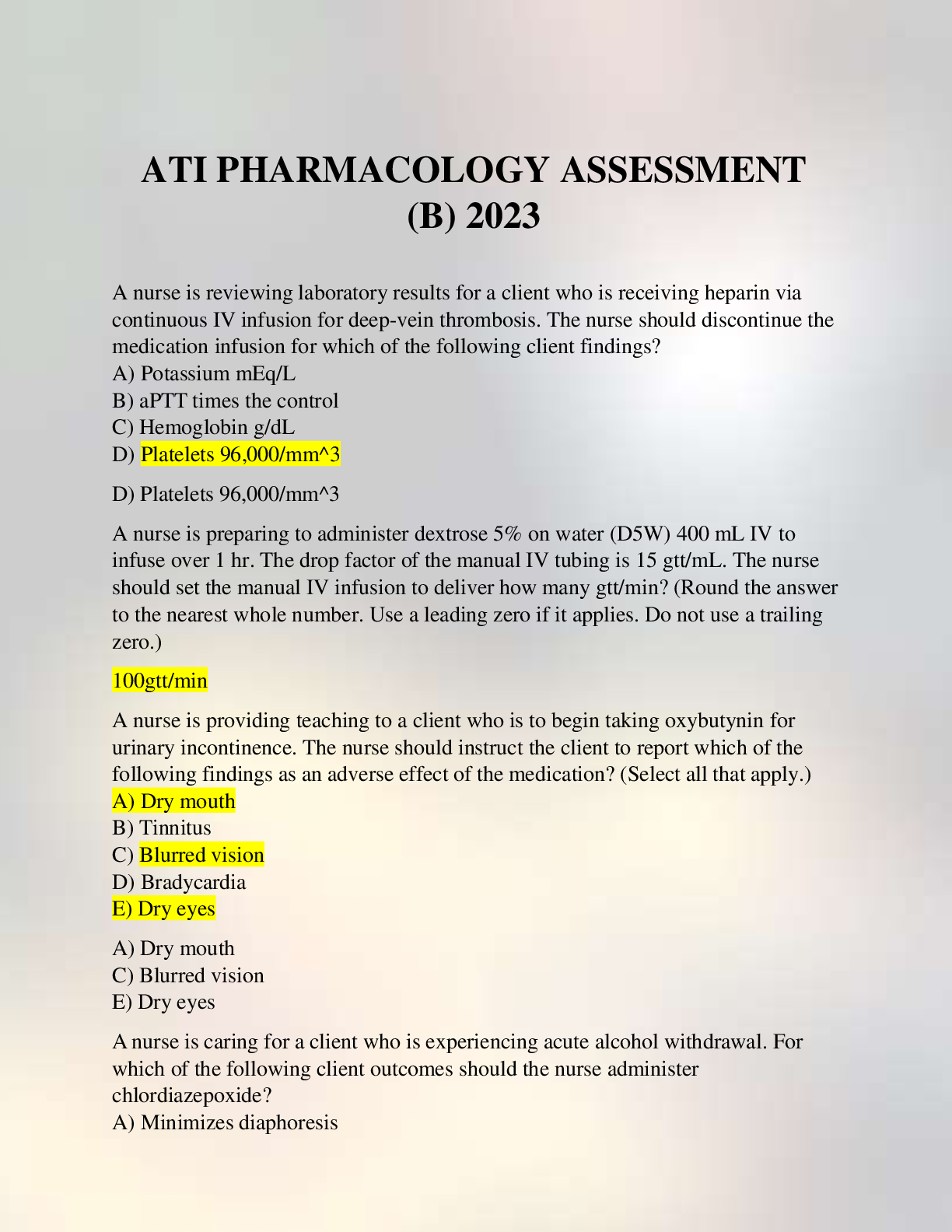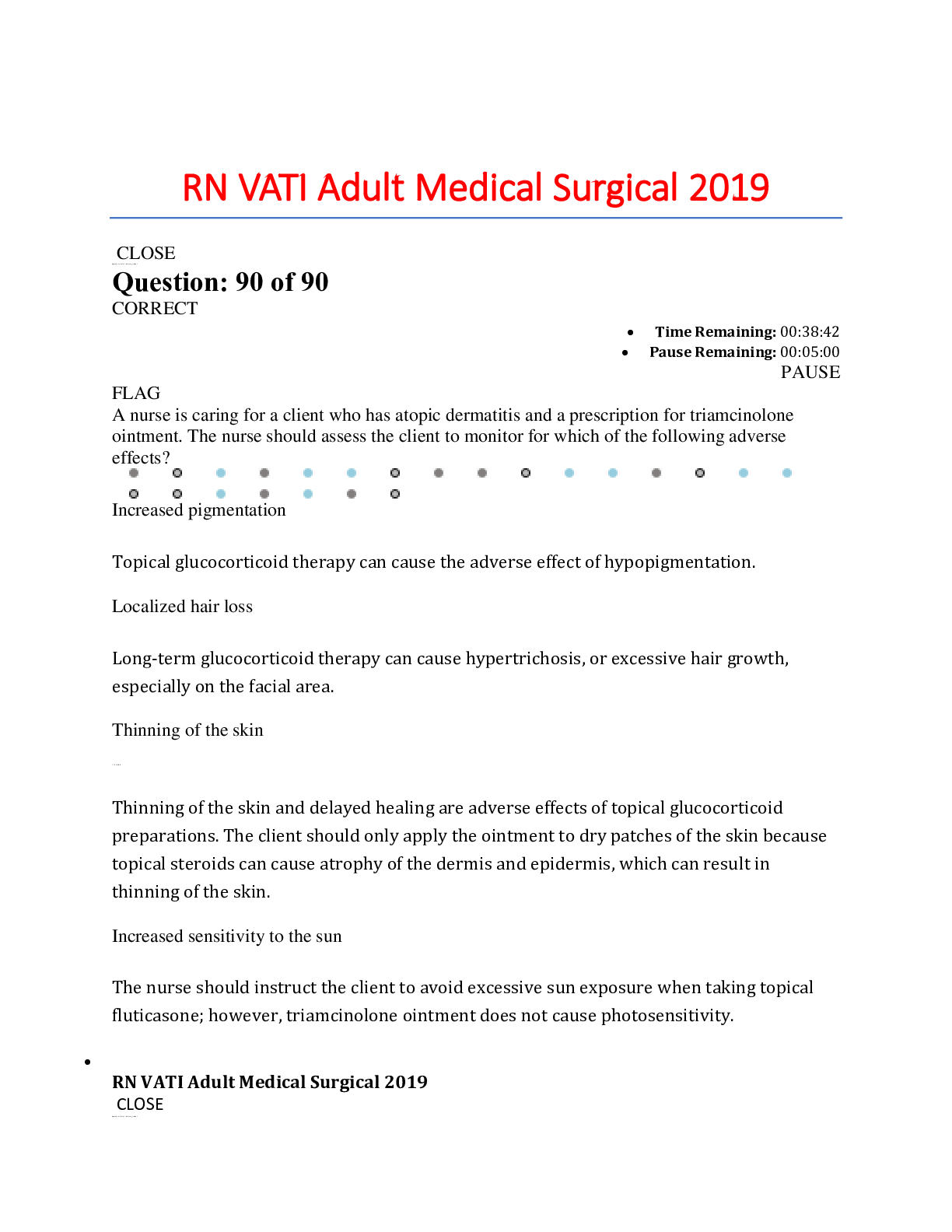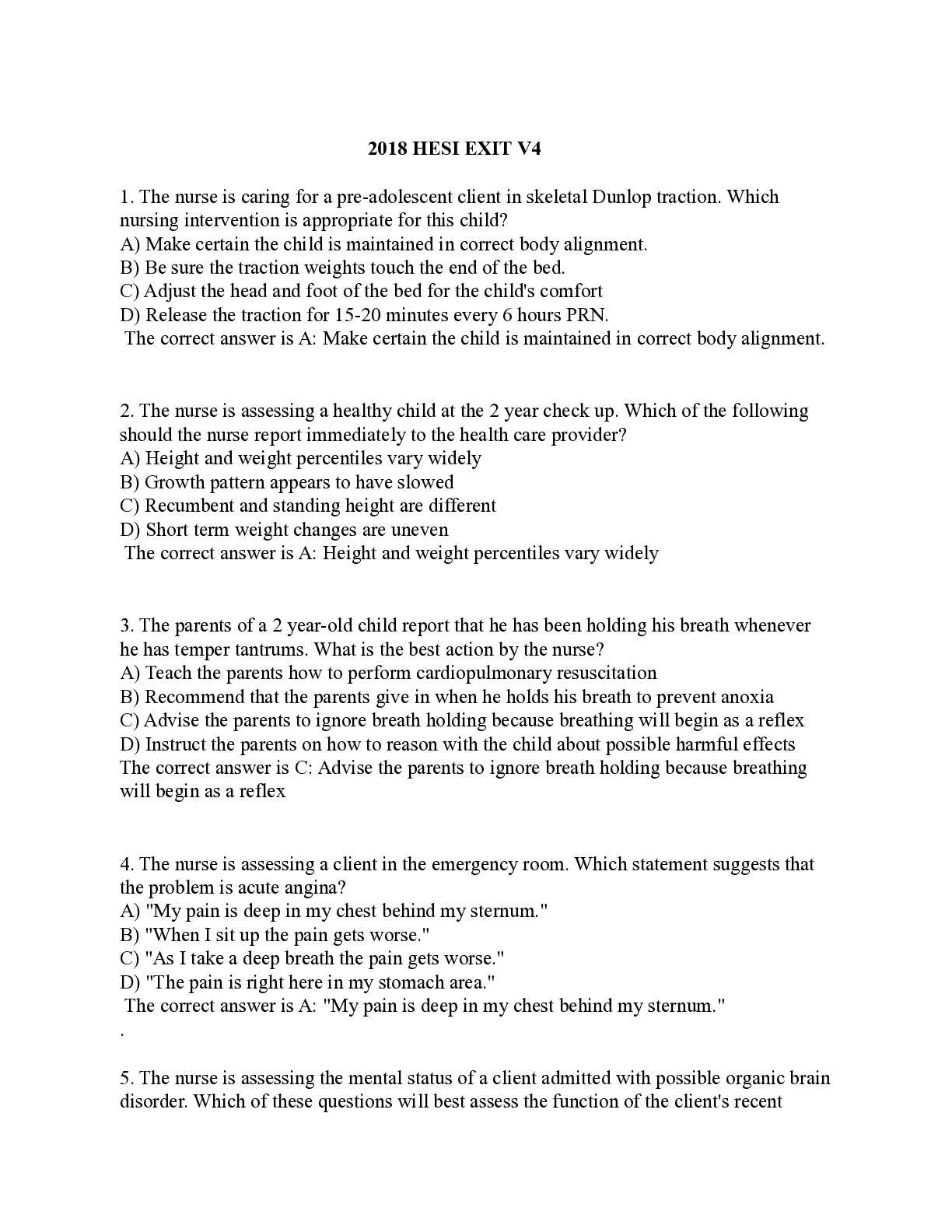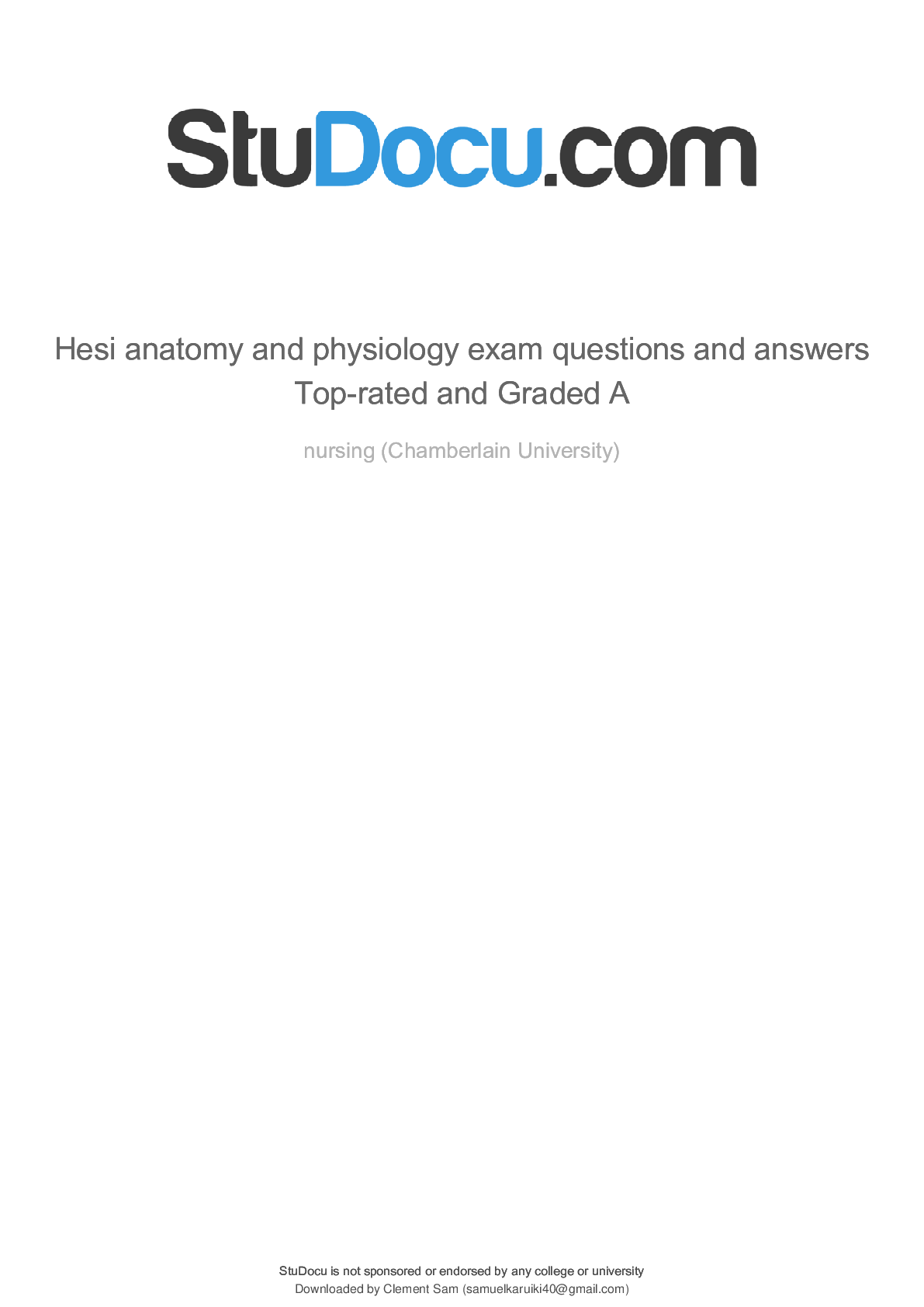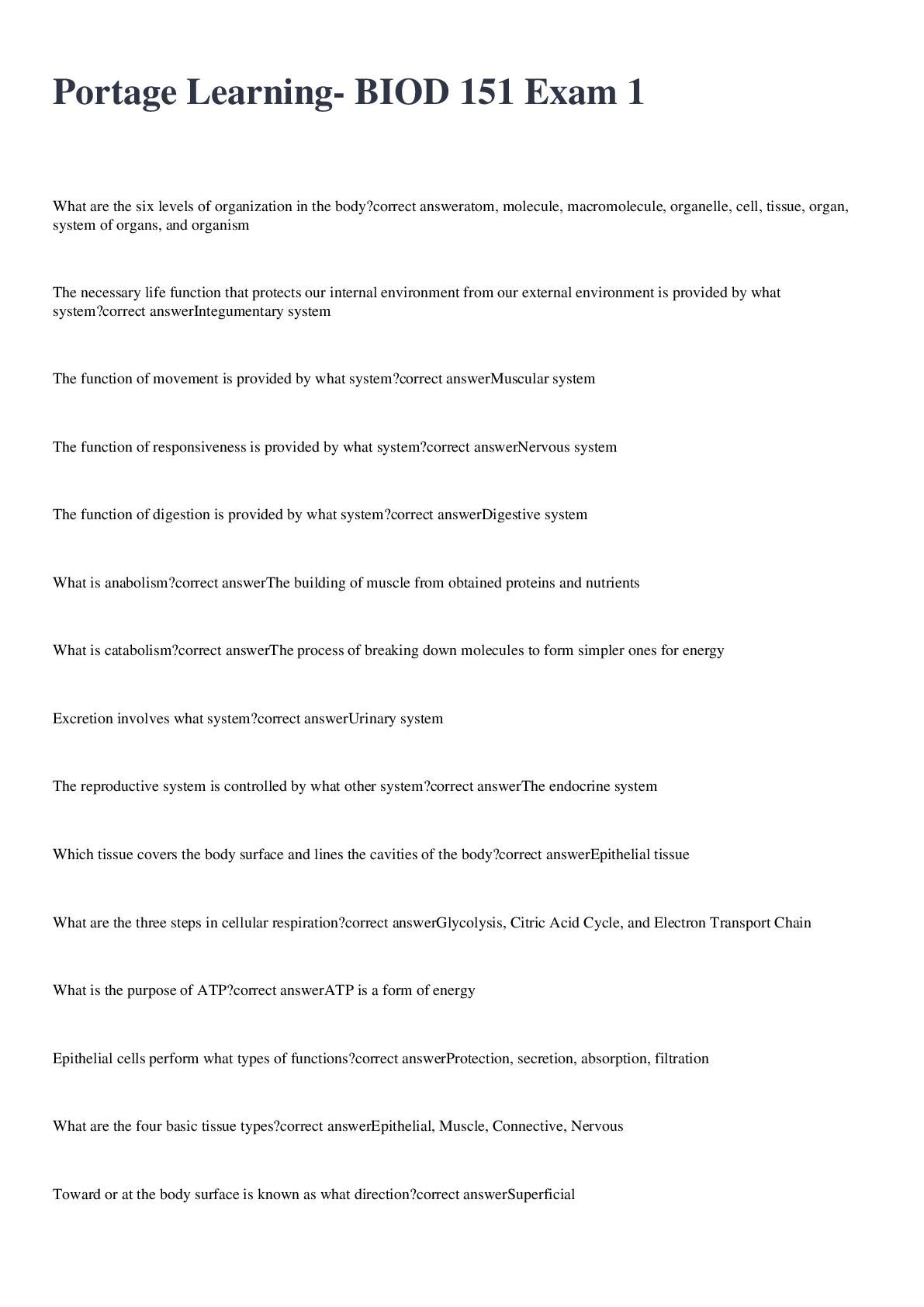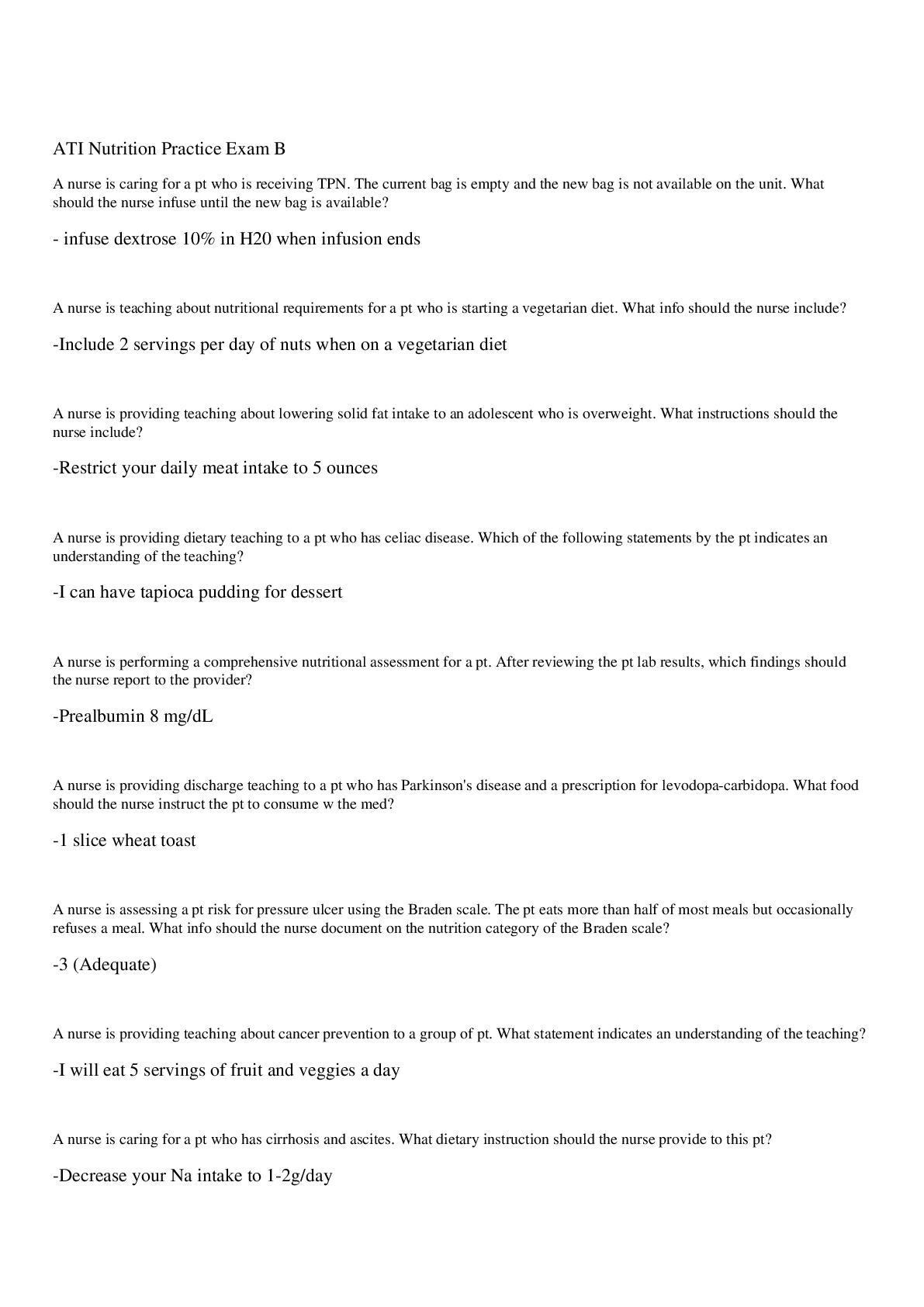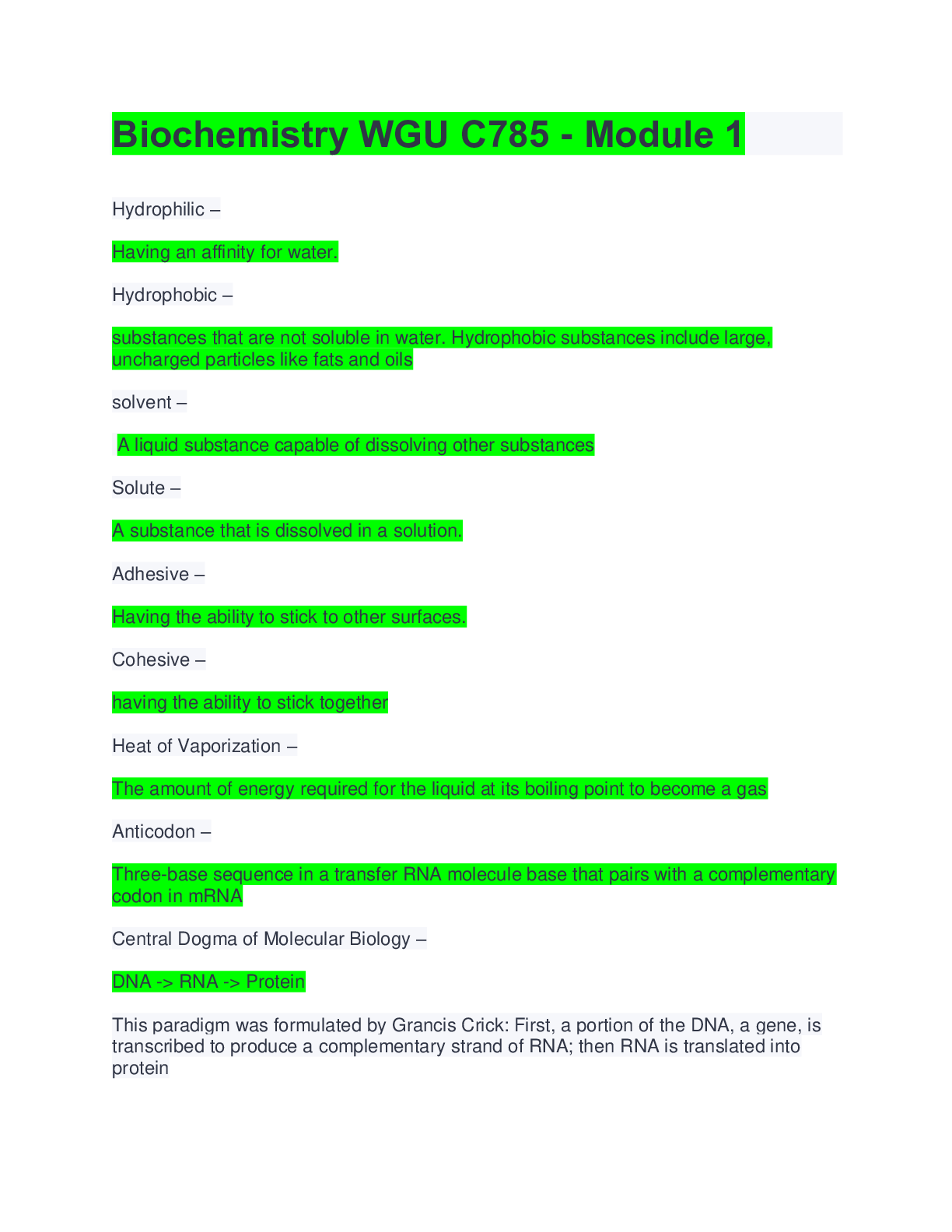Social Sciences > EXAM > Stuvia_338568_rsc2601_exam_preparation Questions and answers to boost your grades (All)
Stuvia_338568_rsc2601_exam_preparation Questions and answers to boost your grades
Document Content and Description Below
RSC2601 Exam Preparation - Questions and answers written by adeles The study-notes marketplace Buy and sell all your summaries, notes, theses, essays, papers, cases, manua... ls, researches, and many more... www.stuvia.co.za RSC2601 - Research in the Social Sciences 1 EXAM PREPARATION This document is a compilation of past UNISA exam Questions and Answers, Assignment Questions and Answers, as well as Test Yourself Questions and Answers from Studyguide. Answers are motivated by a combination of: • Page references to the UNISA Study Guide: • Short summaries regarding the relevant topic(s) in question. Past exams covered are: • May/Jun 2011 • Oct/Nov 2011 • May/Jun 2012 • Oct/Nov 2012 • May/Jun 2013 • Oct/Nov 2013 • May/Jun 2014 • Oct/Nov 2014 • May/Jun 2015 • Oct/Nov 2015 • May/Jun 2016 • Oct/Nov 2016 • May/June 2017 All duplicated questions in the above papers are consolidated, in order to remove unneccesary clutter. Note that this only applies in instances where questions were duplicated verbatim. The suffix after each question number refers to one of the question papers where this question was asked, e.g. 1-16 denotes May/June 2016 and 2-13 denotes Oct/November 2013. Assignments covered are: • Previous Assignment 1 • Previous Assignment 2 • Previous Assignment 3 • Previous Assignment 4 • Semester 1 Assignment 1 (2017) • Semester 1 Assignment 2 (2017) • Semester 2 Assignment 1 (2017) • Semester 2 Assignment 2 (2017) Please note: This document is an additional tool for exam preparation. The Stuvia-user that compiled and uploaded this document takes no responsibility for incorrect answers. Students must ensure that they study the prescribed material and understand the content. EXAM QUESTIONS 2 QUESTION 1 (1-11) A person of high academic standing is given the task by the local government to investigate the best ways of ensuring participation of people living in a small town in an agricultural development project. Being of her high status, she speaks with authority. The research results obtained by this person must be: 1) accepted unquestioningly because of the high academic standing of the researcher 2) rejected because authority is not a valid way to gain knowledge 3) rejected because participation is a form of common sense knowledge 4) accepted if it withstands critical scrutiny QUESTION 2 (1-11) The different accounts of people having witnessed a car accident can be ascribed to: 1) overgeneralisation 2) selective observation 3) ego involvement 4) stress QUESTION 3 (1-11) People's dependence on media presentations for understanding the impact of, for example, sophisticated communication technology on their daily lives, is an example of . 1) media myths. 2) authonty 3) mythical Interpretation of technology. 4) scepticism towards technology. QUESTION 4 (1-11) Identify the epistemological statement: 1) social reality and natural reality can be studied in the same way 2) social reality is inherently meaningful 3) human beings are reflexive 4) patriarchy is common in traditional societies 5) hidden structures mask the true nature of social reality QUESTION 5 (1-11) Research on juvenile delinquency would be regarded and interpretive if it: 1) establishes a crucial relationship between juvenile delinquency and poverty 2) treats juvenile delinquency as a fact 3) provides reasons for juvenile delinquency 4) focuses on causation rather than description 5) treats juvenile delinquency as a construction of meaning QUESTION 6 (1-11) In the context of positivism, value freedom implies that: a) values are not important by positivists to research b) positivists distance themselves in research from their own values c) objective findings can be made about social reality d) the values of the positivist must take precedence in the research process 4 e) objectivity is pursued by using standardized research procedures 1) a), c), e) 2) a), d), e) 3) b), c), d) 4) b), c), e) 5) c), d), e) QUESTION 7 (1-11) Which of the following statements are true with regard to theories in the social sciences? a) theories can describe or explain a phenomenon b) theories are broader in scope than approaches c) the level of abstraction of theories can differ d) theories guide research e) theories are speculations 1) a), b), c) 2) a), b), d) 3) a), c), d) 4) a), c), e) 5) b), c), d) QUESTION 8 (1-11) Which of the following concepts reflects the highest level of abstraction? 1) age 2) gender 3) alienation 4) educational level 5 5) income ......................................................................................continued.................................................................................. [Show More]
Last updated: 1 year ago
Preview 1 out of 238 pages
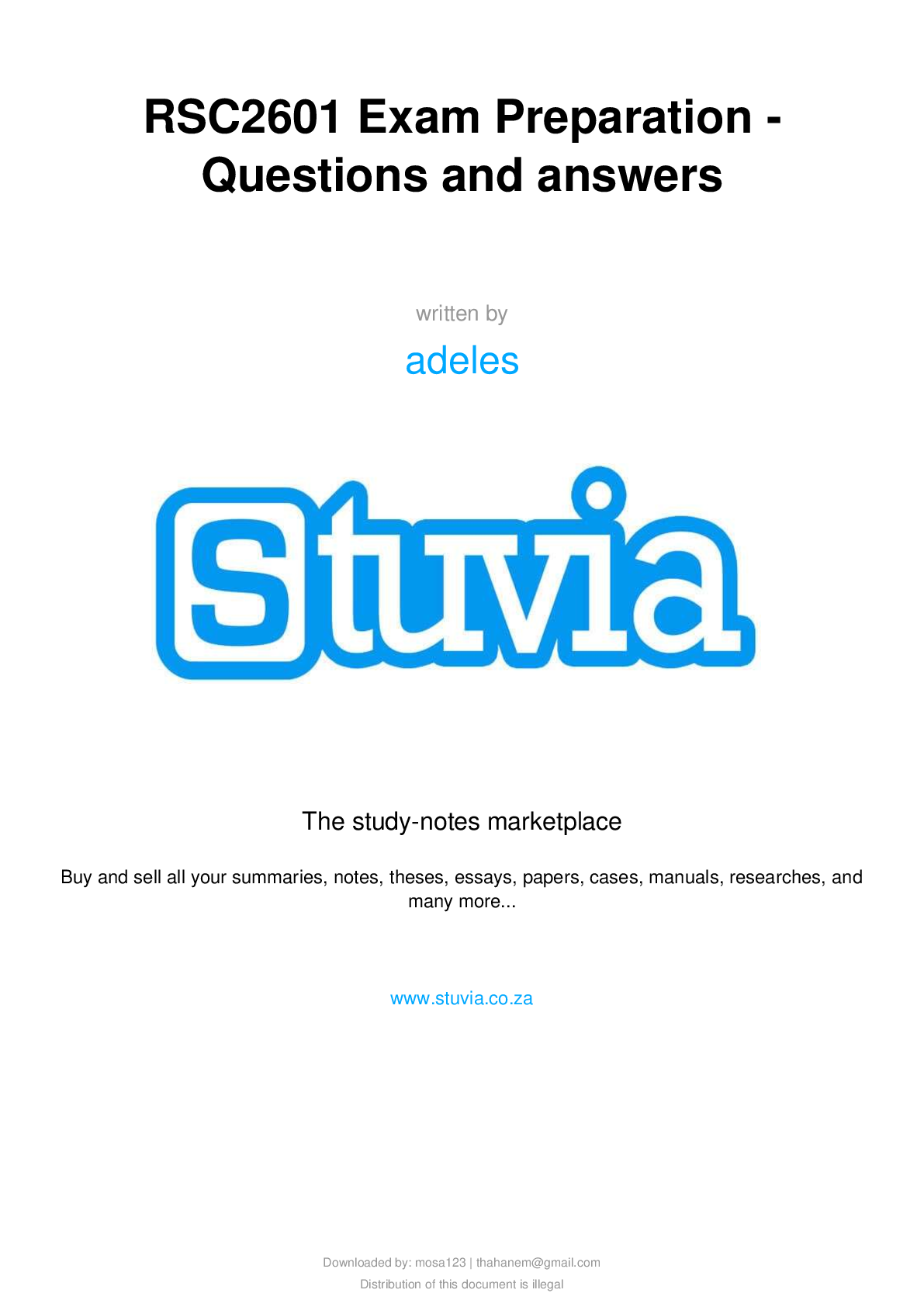
Reviews( 0 )
Document information
Connected school, study & course
About the document
Uploaded On
Oct 06, 2021
Number of pages
238
Written in
Additional information
This document has been written for:
Uploaded
Oct 06, 2021
Downloads
0
Views
48

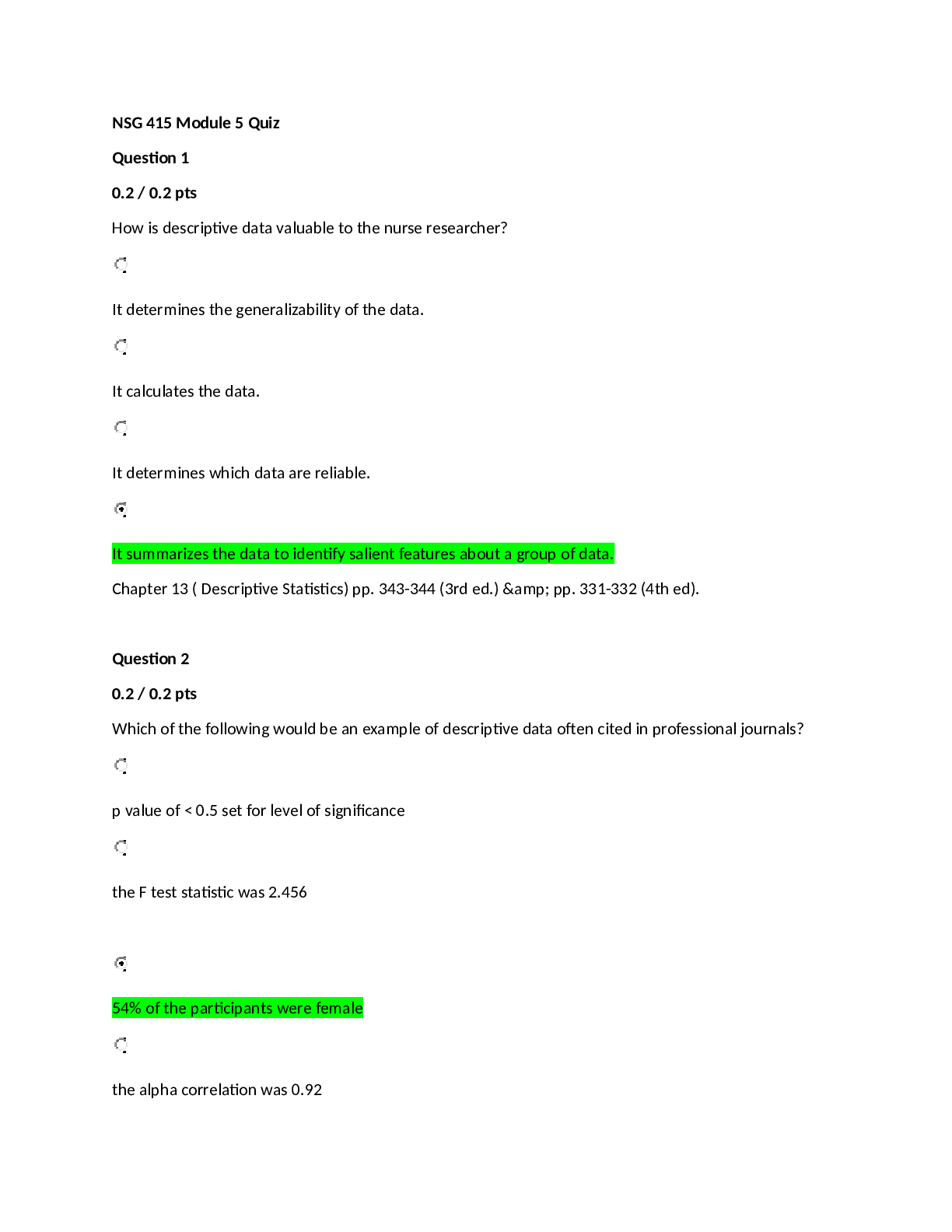
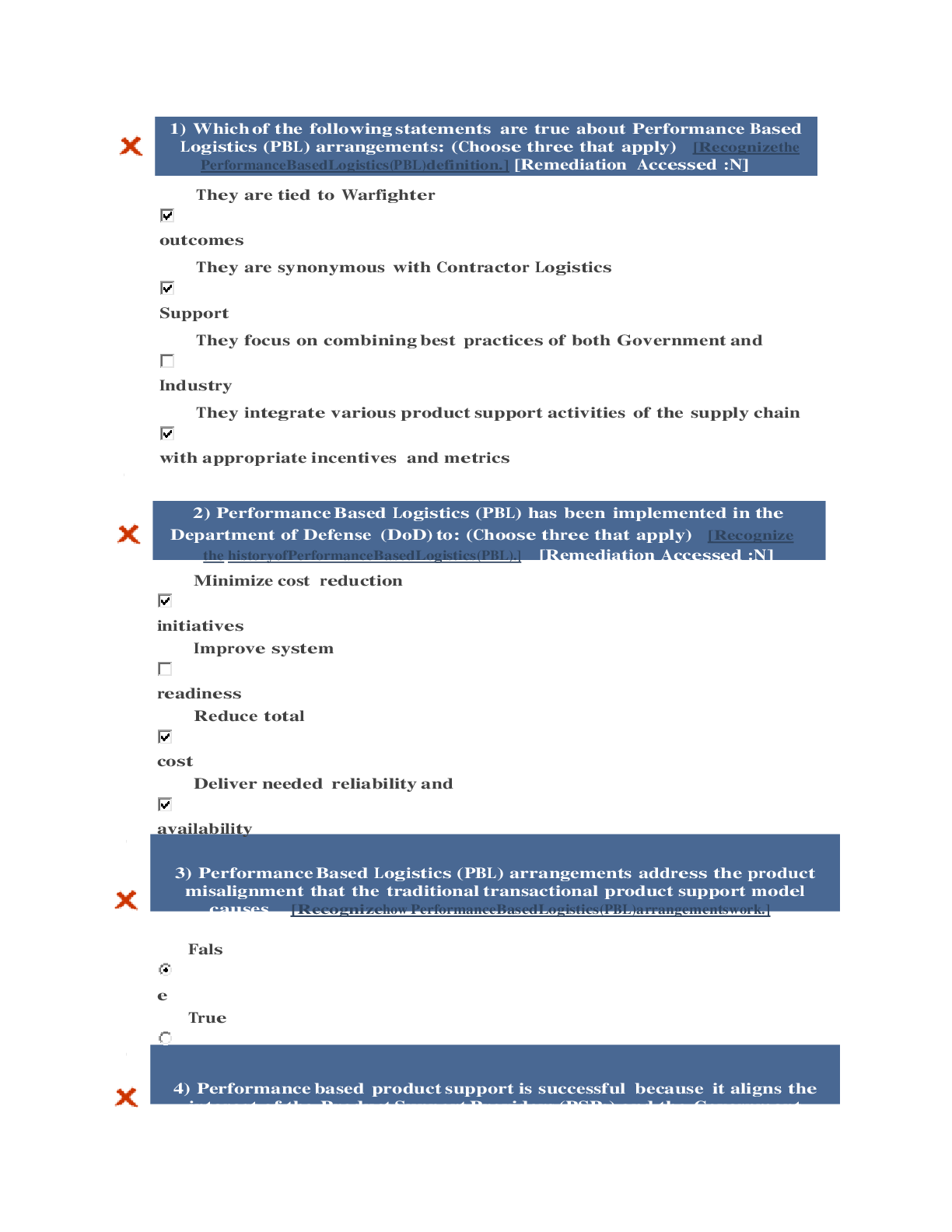

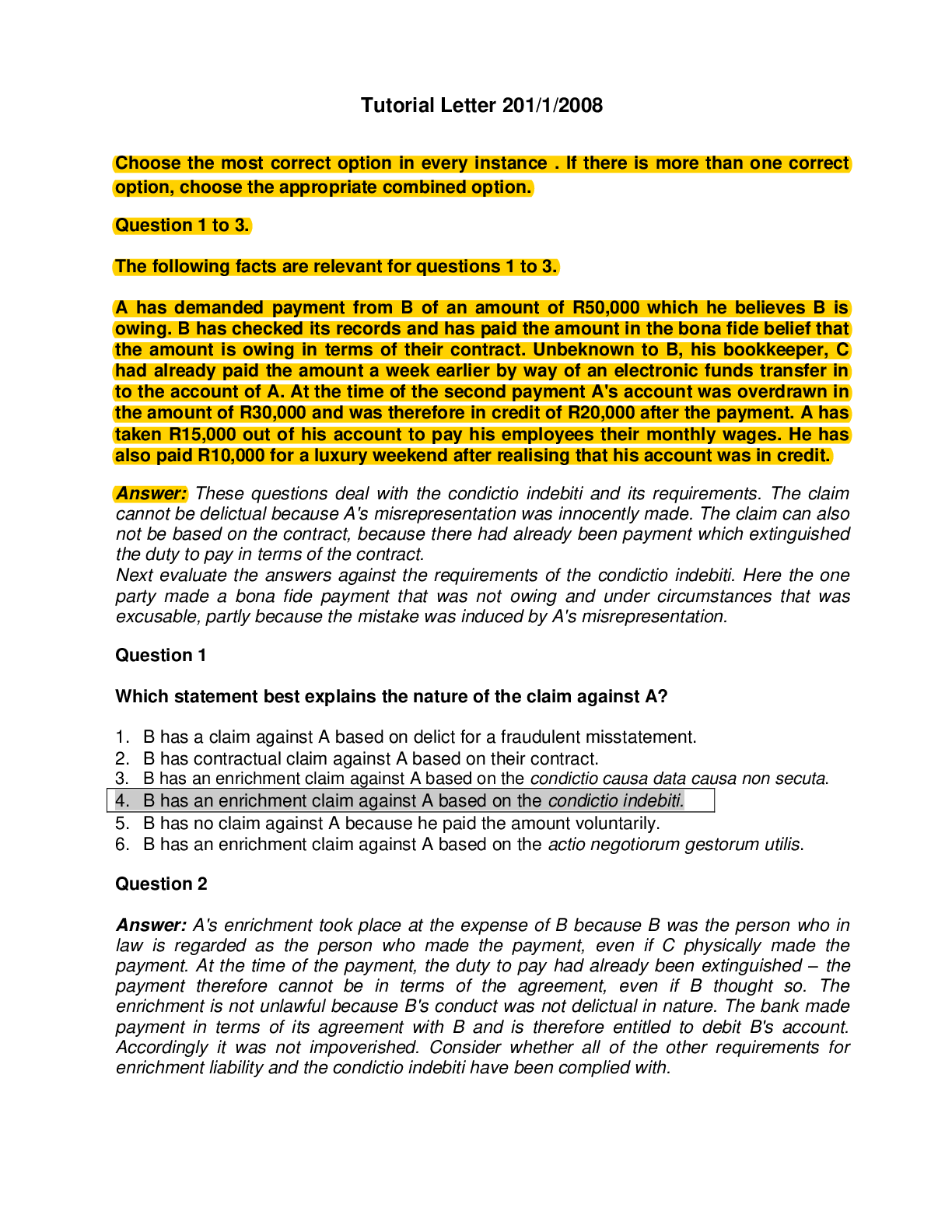
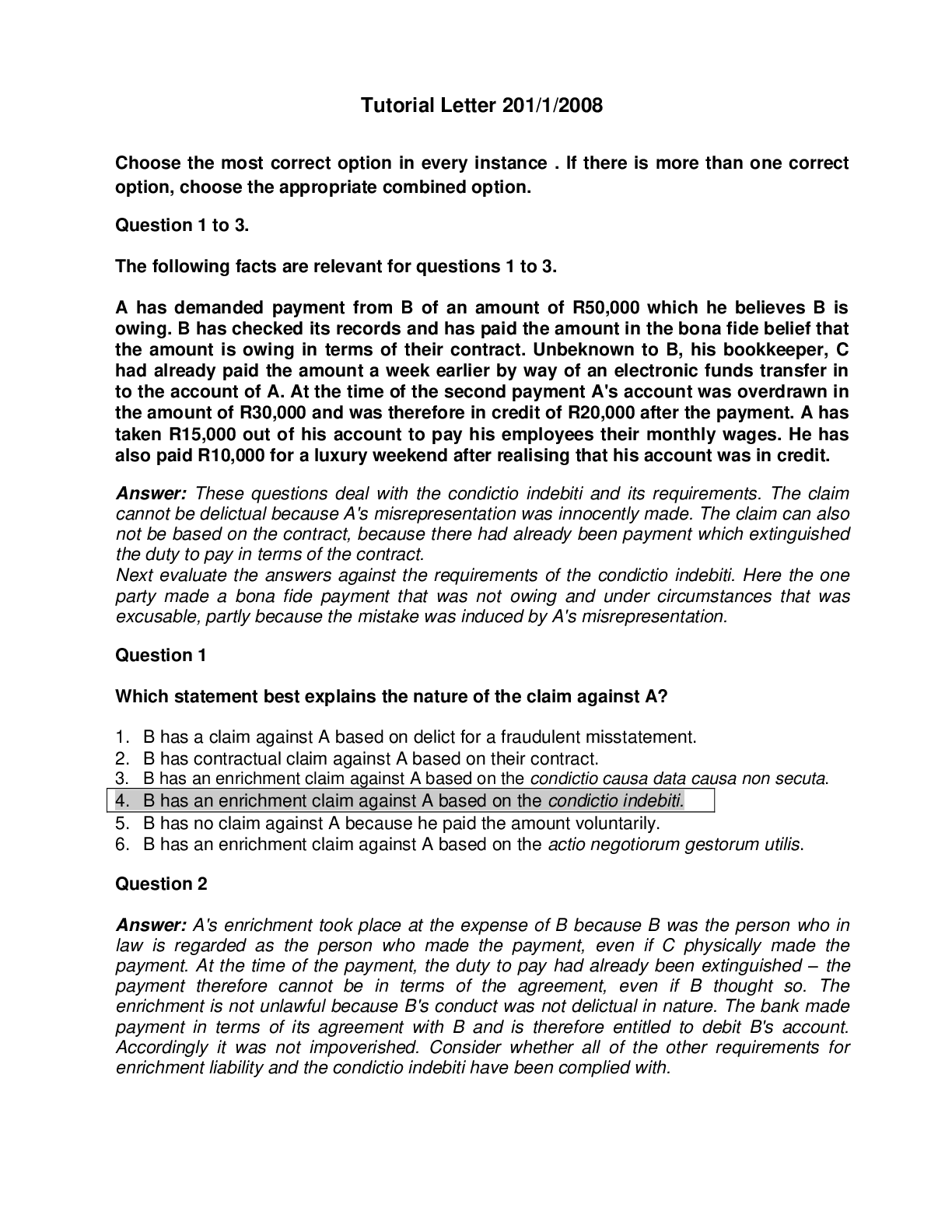
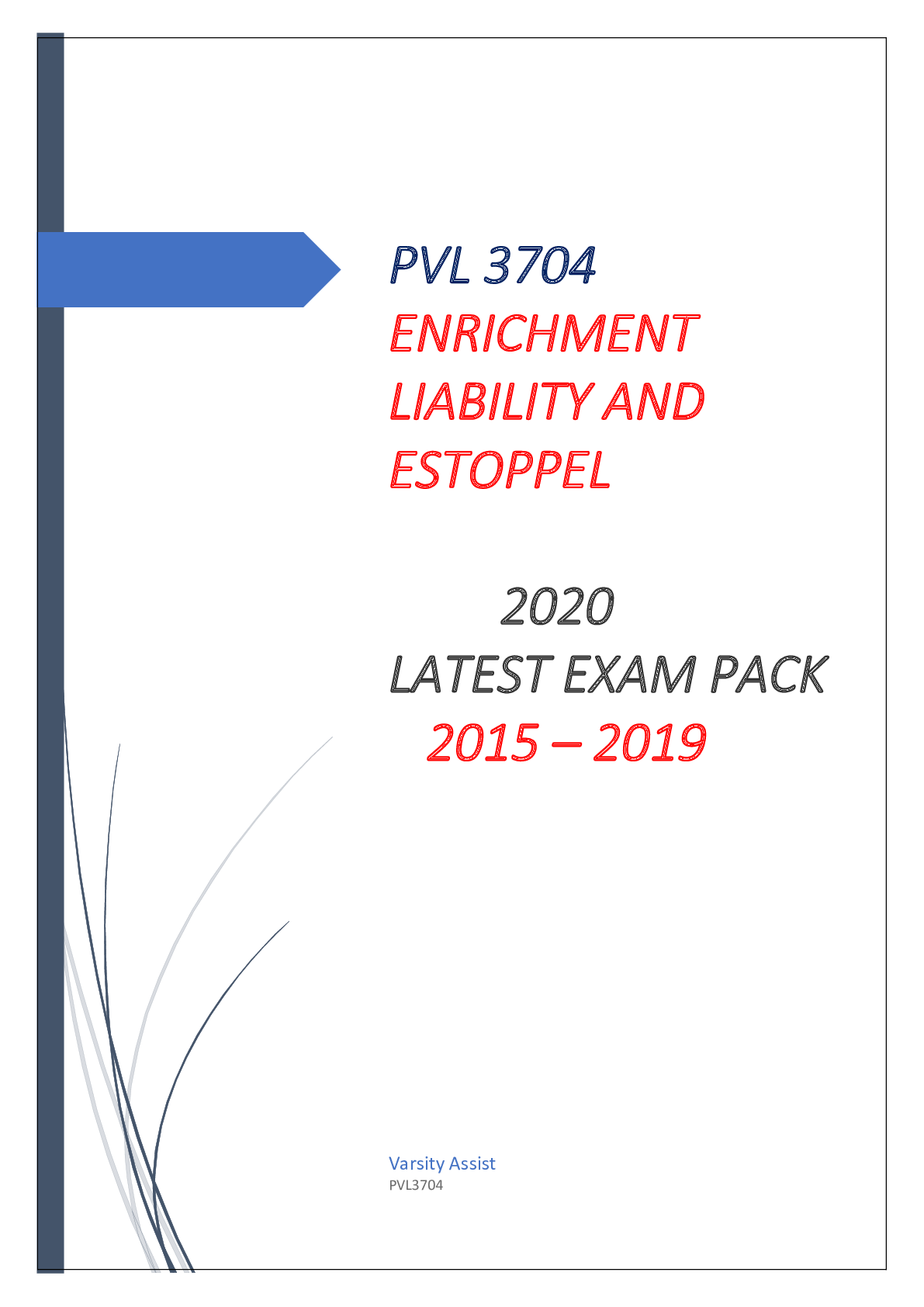


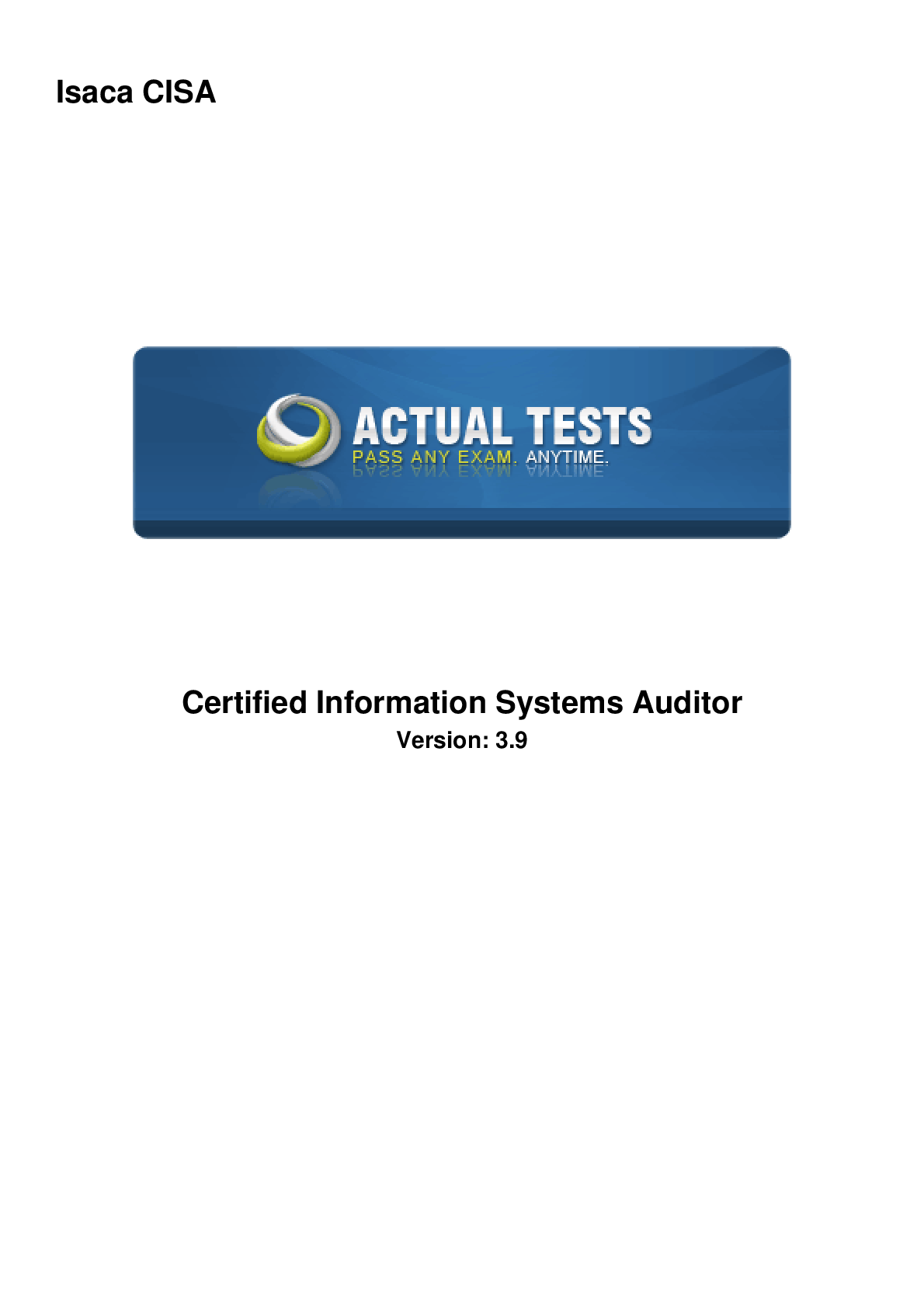
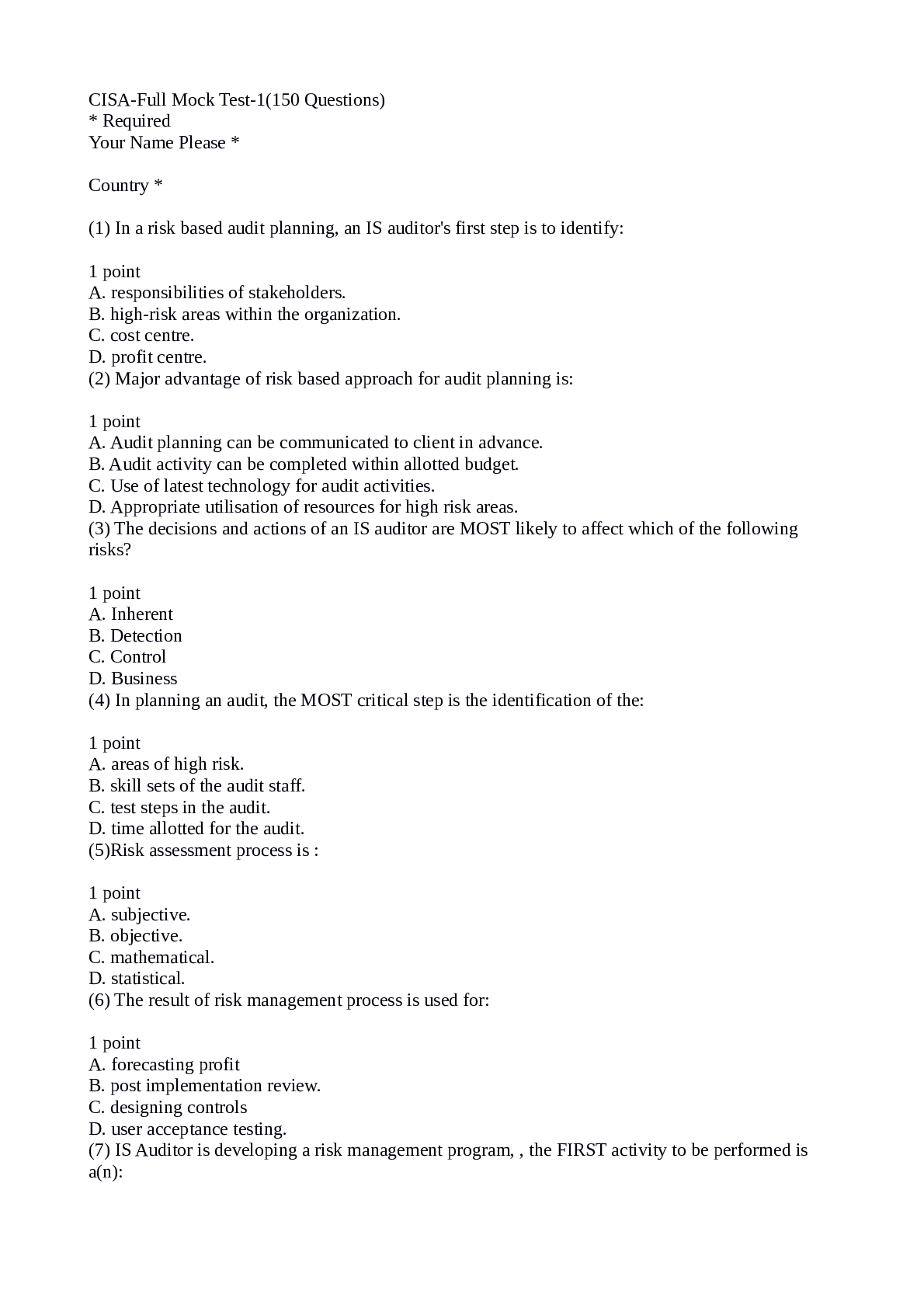
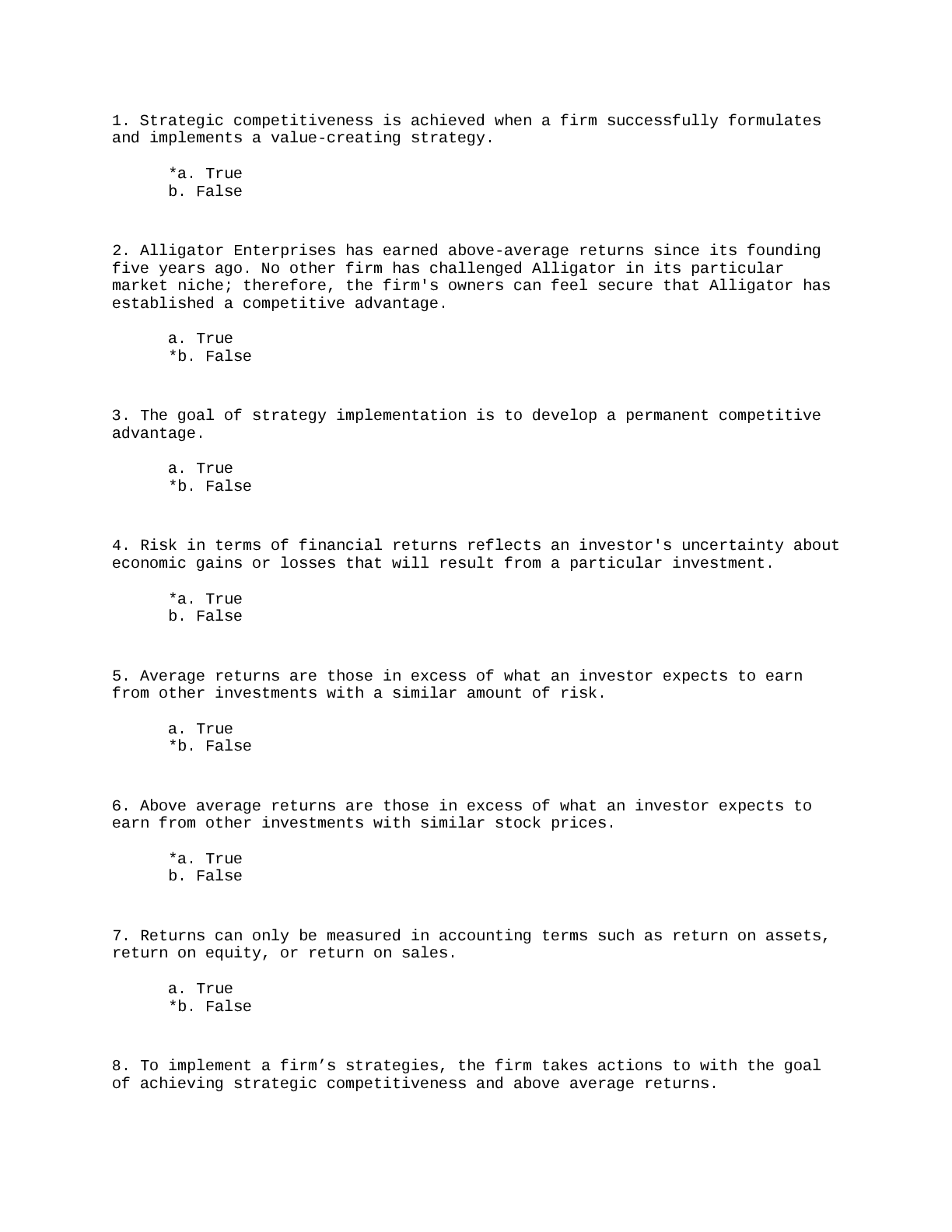
.png)
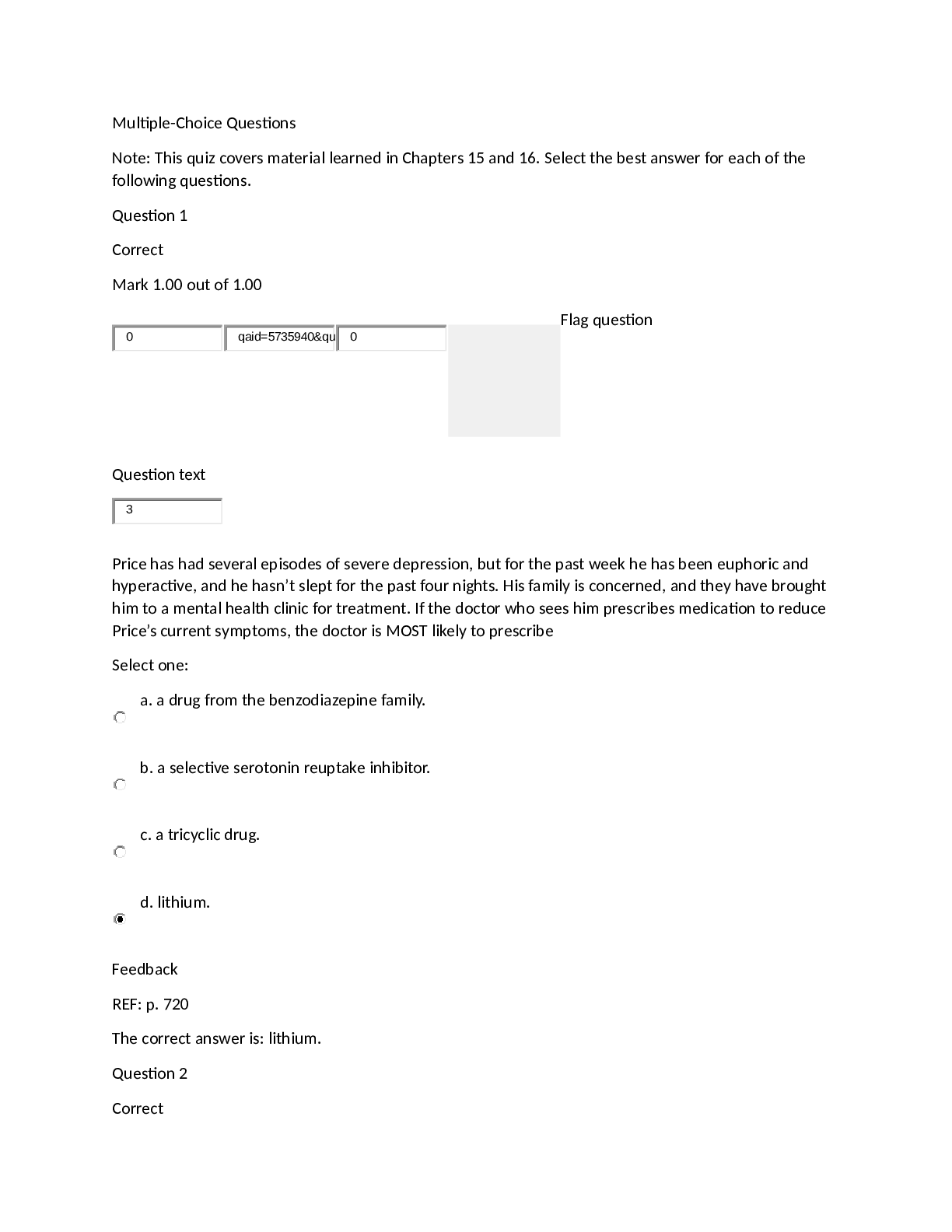
.png)
